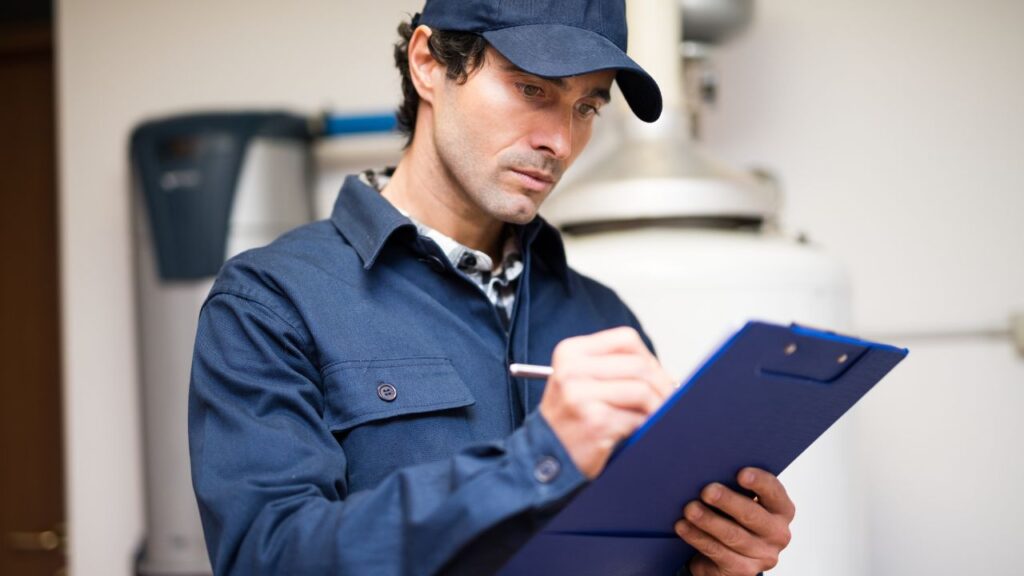When a pipe bursts or your kitchen sink clogs, it’s time to call in a professional. But how much does a plumber cost? Well, it’s not always a straightforward amount. The cost of hiring a plumber can fluctuate based on a variety of factors. These might include the nature of the job, the plumber’s experience, and even your location. In this article, we’ll go over the average national cost of hiring a plumber, the typical hourly rates, and the costs for different types of jobs. This will help you understand what to expect when you need plumbing services.
Average National Cost Of Hiring A Plumber
Let’s start with the average cost across the nation. Most homeowners in the U.S. pay around $336 per job when they hire a plumber. This average, however, includes a wide range of job types and complexities. The typical cost can span anywhere from $180 to $494 for standard plumbing tasks. For minor repairs, you might pay as low as $99, while complex or urgent jobs might cost you up to $950.
Hourly Rates: What To Expect?
Plumbers often charge by the hour, and the rate can vary significantly. On average, you can expect to pay somewhere between $90 and $105 per hour for a plumber’s services in the U.S. However, this range can be as broad as $35 to $200 per hour, depending on the region and the plumber’s experience level.
A master plumber, who has the highest level of skill, might charge you up to $200 per hour. On the other hand, if you hire a handyman for limited plumbing tasks, you’ll likely pay between $50 and $80 per hour.
Typical Job Costs: Small vs. Large Repairs
The cost of hiring a plumber also depends on the type of job. For small repairs, like fixing a faucet or unclogging a drain, you’ll likely pay between $75 and $250. Larger repairs, such as fixing a water heater or a sump pump, will cost more. Expect to shell out between $500 and $800 for these types of jobs.

There’s also a minimum fee that many plumbers charge for call-outs, usually covering the first hour. This cost typically ranges between $50 and $200. Depending on the nature of the job, additional fees for travel or materials may apply.
In conclusion, understanding the costs associated with hiring a plumber can help you budget for unexpected issues and regular maintenance alike. While costs do vary, having a ballpark estimate can make the whole process a lot less stressful. After all, the last thing you need during a plumbing emergency is added financial worry.
Factors Affecting Plumbing Costs
If you’re wondering why the cost of plumbing services varies, it’s because several elements come into play. The primary factors include location, the plumber’s experience, urgency, and the scope of the job.
Location
Where you live has a significant impact on what you’ll pay for plumbing services. Typically, plumbing costs are higher in urban or metro areas compared to their rural counterparts. This is due to the high operating costs in these regions, which plumbers factor into their charges.
Experience
The level of expertise of the plumber you hire also influences the cost. Seasoned or master plumbers usually charge more than apprentices or handymen. This is because they bring a higher level of skill, knowledge, and reliability to the job, which can significantly reduce the risk of future plumbing issues.
Urgency
The timing of your service call can also affect the price. Emergency or off-hours calls can double or even triple the standard hourly rate. If you have a plumbing issue that can wait, it might be more cost-effective to schedule a service call during regular business hours.
Job Scope
Finally, the type of job and its complexity can significantly influence the cost. Specialized services, such as sewer line repair, tend to be at the higher end of the price range due to the skills and equipment necessary for these tasks.
Emergency & After-Hours Services: Additional Charges
Plumbing emergencies never seem to occur at convenient times. Whether it’s a burst pipe in the middle of the night or a blocked toilet during a holiday gathering, these unexpected issues can cause stress and inconvenience. To tackle these urgent problems, many plumbers offer emergency or after-hours services. However, these services typically come at a higher cost, with rates ranging from $150 to $300 per hour. It’s essential to ask about these additional charges when calling a plumber outside of regular business hours.
Location-Based Variations in Plumbing Pricing
Plumbing costs can also vary from one location to another. Not only does the cost of living factor into the equation, but so too does local competition. In areas where there are many plumbers, you might find more competitive rates than in regions where plumbers are scarce. Location also affects the cost of materials, permits, and inspections, which can all add to the overall cost of your plumbing project.
In a nutshell, understanding how your location, the time of your service call, the complexity of the job, and the plumber’s experience level affect the cost can help you budget appropriately for plumbing services. It’s always a good idea to get multiple quotes and ask questions about potential additional charges to ensure you’re getting the best value for your money.
DIY vs. Hiring A Professional: Cost Considerations
When facing a minor plumbing issue, you might be tempted to tackle it yourself. After all, a quick YouTube tutorial and a trip to the hardware store can seem like a cost-effective solution. But is it really?
DIY plumbing can save you money upfront, especially for simple tasks. For instance, replacing a faucet or unclogging a drain can be done for the cost of materials, usually less than $100. However, DIY isn’t always the best route to take. Plumbing is more complex than it may initially seem, and a simple mistake can turn a minor issue into a major, costly problem.
For example, incorrectly installing a pipe or failing to properly seal a joint can lead to leaks and water damage. The cost of fixing such damage, combined with the need to hire a professional plumber to correct the initial problem, can quickly exceed the cost of hiring a professional in the first place.
Seasoned plumbers bring not just their skills and knowledge to the job, but also their experience in handling unexpected issues that may arise during the repair or installation process. They can identify potential problems before they become major headaches, saving you time, money, and stress in the long run.
Tips For Saving Money On Plumbing Services
While you can’t avoid plumbing issues entirely, there are ways to save money on plumbing services. Here are a few tips:
1. Preventative Maintenance: Regular maintenance can extend the life of your plumbing system and appliances. It can also identify potential problems before they become major repairs. Consider scheduling a yearly inspection with a professional plumber.
2. Do Simple Tasks Yourself: Changing a faucet washer, replacing a showerhead, or unclogging a slow drain are tasks most homeowners can handle. Save the professional plumber for complex tasks and emergencies.
3. Bundle Jobs: If you have several small plumbing tasks, try to schedule them all at once. Many plumbers charge a minimum service fee that covers their travel time and the first hour of work.
4. Get Multiple Quotes: Don’t settle for the first quote you receive. Different plumbers have different fee structures and hourly rates, so it’s worth your time to compare prices.
5. Ask About Discounts: Some plumbers offer discounts for first-time customers or for multiple jobs. Don’t be shy about asking!
Remember, the goal isn’t just to save money, but to ensure the job is done correctly and efficiently. By investing in professional plumbing services, you’re investing in the longevity and functionality of your home.
Conclusion
Understanding the costs associated with hiring a plumber is essential for homeowners. From the average national cost to the factors that can influence the final bill, being informed helps you budget for both routine maintenance and unexpected repairs.
While DIY may seem like a cost-saving option, the potential for mistakes and subsequent damage makes hiring a professional a smart choice for most plumbing tasks. With a few tips and tricks, you can make the most of your plumbing budget.
After all, when it comes to the integrity of your home’s plumbing system, peace of mind is worth every penny. Remember, an investment in professional plumbing services is an investment in the health and longevity of your home.





